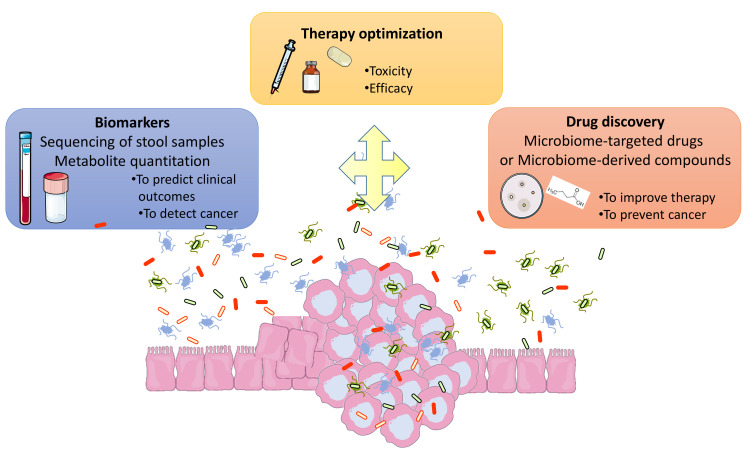Figure 1.
Intestinal microbiome for a better management of cancer patients. New biomarkers based on microbial composition of the stool are emerging to predict clinical outcomes. Metabolites signatures and/or sequencing oral samples will also be developed as diagnostic or prognostic biomarkers. Studies about interactions between gut microbiota and treatments (surgery, chemotherapy, immunotherapy, radiotherapy) could allow to improve their efficacy and decrease some side effects (e.g., post-surgical complications, toxicity). Gut microbiota data could be use for the discovery of new and innovative therapeutic tools as small bioactive molecule which mimic benefic microbial effect or targeting procarcinogenic bacteria. Microbial intervention could be developed including prebiotics, probiotics, phages. Natural products and/or diet complementation can also be considered. These strategies will have to be adapted according to tumor characteristics and to the patient’s environment, lifestyle, host susceptibility and comorbidities.

